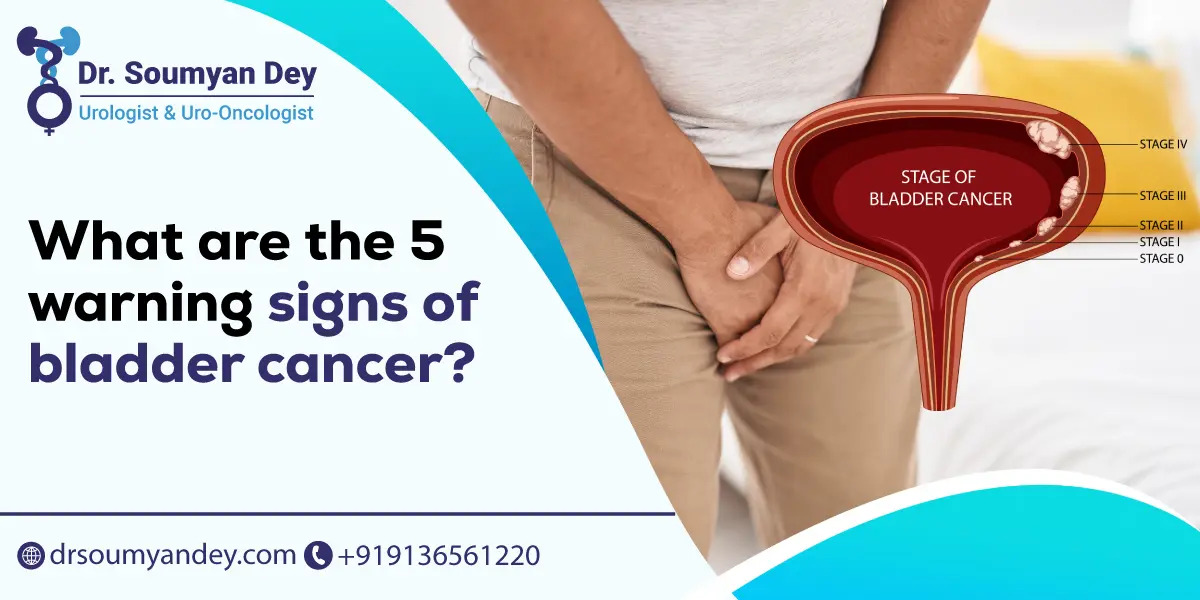How is prostate cancer diagnosed?
Prostate cancer is more common in men above 55 years. In fact, your risk of developing this cancer increases with your age. Researchers believe that your age, ethnicity, race, and family history affect your risk of developing prostate cancer. It is also believed that early diagnosis can help you determine a reliable treatment option. There is a good chance of your survival if the cancer is diagnosed before spreading outside the prostate gland.
However, most people get an accurate diagnosis when cancer has started spreading aggressively. That’s because it doesn’t show any symptoms in the early stage. Should you notice any signs that indicate prostate cancer, “Know the warning signs of Prostate Cancer” visit a urologist immediately. The doctor can suggest the best treatment for prostate cancer in the early stages so that you have a faster recovery and fewer complications.
If you are wondering what tests the urologists will order to detect cancer, you have come to the right place. In this post, we will show you the most popular diagnosis methods for prostate cancer.
Let’s take a look on the types of Prostate Cancer Test
A Physical Exam and Your Medical History
Family history is one of the factors for diagnosing prostate cancer. People with a family history of prostate cancer are more prone to developing cancer than others. When you see a urologist, they will ask about your symptoms, how long you have been experiencing them, and if you have a medical history of cancer.
Based on your symptoms, a Prostate Cancer Surgeon might insert a lubricated finger into your rectum to detect any unusual hardness or bumps that might indicate cancer. This is called the digital rectal exam. It helps the doctor know if the cancer is within your prostate or has spread beyond the prostate gland. They might also test other parts of your body. Based on the reports, they might order further tests to confirm whether you have prostate cancer. In most cases, prostate surgery is needed if the cancer is spreading aggressively.
PSA (Prostate Specific Antigen) Blood Test
For men with or without the symptoms of prostate cancer, a PSA test is recommended. It’s mostly the first test used to diagnose the onset of cancer. PSA refers to the protein found in the prostate gland. Although it is found in semen mainly, a small amount is also in your blood. Your urologist orders PSA to identify your risk of prostate cancer. The higher the PSA goes, the higher the chances you have cancer. It is measured in ng/ml.
There is no cutoff point for deciding whether a man has prostate cancer. Most urologists order further screening if the PSA is 4 or above. Others consider a PSA of 2.5 – 3 to be an alarming symptom. Note that the PSA above 10 means that the chances of the patient having prostate cancer are above 50%. That being said, not every man with prostate cancer has a PSA of 4 or above. So, further tests are needed for confirmation.
Prostate Biopsy
The above Prostate Cancer test give urologists a better idea of your risk of having prostate cancer. If the above reports show a strong sign of prostate cancer, your doctor will conduct a prostate biopsy, in which tissues from the prostate are used as samples to detect the presence of cancer cells in your prostate. This can be done through an MRI or TRUS (or a combination of both). In a biopsy, the doctor puts a needle through the rectum into your prostate. This needle takes small tissues from different parts of your prostate.
The needle is inserted several times so that the doctor can collect multiple tissues for an accurate diagnosis. The procedure might sound a bit intimidating and painful, but it causes minor discomfort. Your doctor will numb the area with local anesthesia before inserting the hollow needle. You can get the results in 1-3 days. If the results are positive, it means the cancer cells are found in your prostate and further screening is required to identify the stage of cancer.
Imaging Tests for the Diagnosis of Prostate Cancer
X-rays, ultrasound, and MRI are a few imaging tests that can detect the growth of cancerous tumors in your prostate. The doctor might use one or more tests to detect cancer and know if it has started spreading to the nearby organs. If the imaging tests show cancer, the doctor might test other parts of your body as well to identify the areas where cancer might have spread.
These were the Prostate Cancer tests used for the diagnosis of prostate cancer. Depending on the results, your urologist will recommend the best prostate cancer treatment. If you are looking for Best Prostate Cancer Test in Mumbai, Visit Dr Dey’s Urocare.







